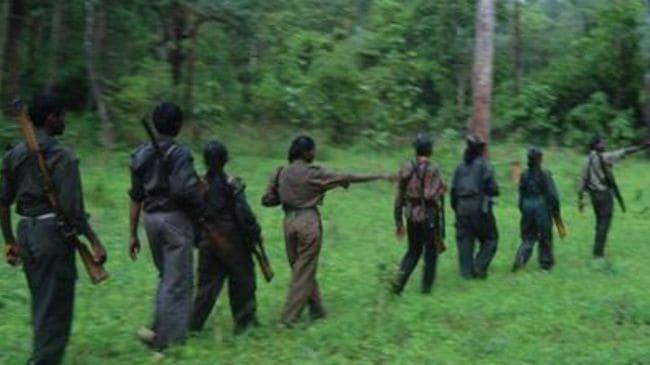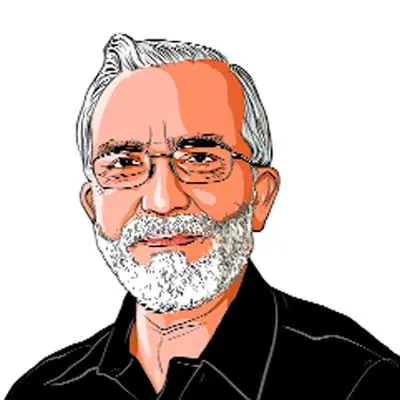Opinion Suhas Palshikar writes: Left Wing Extremism is a smokescreen. Maharashtra’s new law could criminalise dissent
While the law mentions LWE, these political acts are the common language of democratic mobilisation and as such practically any social worker can be booked for extending a verbal criticism of authorities.
 Maoist violence in many parts of the country has invited a reaction of repulsion even among those who may have a leftward leaning.
Maoist violence in many parts of the country has invited a reaction of repulsion even among those who may have a leftward leaning. What you require is a dictionary, the Supreme Court is reported to have told the SIT in the Ali Khan Mahmudabad case recently. Very soon, the courts may have to say, what you need is a set of Political Science books. The need to read Political Science literature may be necessitated by the mention of Left Wing Extremism (LWE) in a bill passed by the Maharashtra legislature in the name of protecting public security.
Indeed, there is a separate section under the Ministry of Home Affairs that deals with LWE but one is not sure that there is a clear legal definition of LWE. The MHA portal says that LWE refers to organisations that are banned and listed as an appendix to the Unlawful Activities (Prevention) Act. But that hardly satisfies the test of what conceptually constitutes LWE. Broad innuendos making the rounds in the public domain refer to Maoism. In operational terms, the provisions refer to the use of violence for the overthrow of the state. But since the Maharashtra government now intends to incriminate Left Wing ideology, the onus is on the government to specify what it means by it.
In the absence of clarity, anyone can be accused of subscribing to Left Wing ideology, and then the police will be running from one library to another for material on what constitutes Left Wing ideas. The current dispensation in Maharashtra and nationally is allergic to the idea of the “Left”. Therefore, it will do well to come forward and define for legal purposes which ideas are construed as Left and are hence liable to be proscribed.
Maoist violence in many parts of the country has invited a reaction of repulsion even among those who may have a leftward leaning. That repulsion is tactically utilised intellectually and cinematically by some who employ the term “urban Naxal”. Even the Maharashtra Chief Minister has repeatedly referred to urban Maoism. What is overlooked is the distinction between those who actively mobilise Maoist violence against the state, those who sympathise with such organisations and those who do not endorse such violence but subscribe to the idea that the stranglehold of capital over state authority needs to be removed.
The other problem with the Maharashtra law is that it incriminates a number of activities that are already proscribed by various laws and thus there is a vicious duplication of legal instruments giving the executive and the police unseemly discretionary powers on whether to book someone under this law, under UAPA or a more routine law penalising crime and violence. We regularly witness instances of how executive discretion results in overenthusiasm and even partisan vendetta. The new law will be an additional instrument to harass civil society. Given that it precludes the bail provision and recourse to lower courts, one can only imagine its likely draconian effects.
Perhaps the most worrisome provisions in this law pertain to freedom of speech and expression. True, we routinely get a dose of pontification from the judiciary that freedom — and freedom of expression, in particular — is not absolute. It is nobody’s case that in the Indian context, this freedom is absolute or without constraints. But the central question that law-makers and the judiciary must answer is not whether freedom of expression is or should be absolute. The question is whether restraints on freedom of expression can be random and arbitrary.
Scholars of the Indian Constitution have argued that writing down the restrictions on the freedom of expression produces a concrete limiting effect on the executive and legislature. The written restrictions guarantee that governments or state authorities will not have unlimited powers to curb the freedom of expression. Also, the constitutional scheme of things requires the test of reasonableness. Restrictions have to be reasonable. Courts are therefore not to tell a citizen what she should reasonably express but to examine if the enforced limitations are reasonable. In the backdrop of the judiciary’s abdication of this sacrosanct duty, the provisions in Maharashtra’s bill could be dangerous and ill-intended.
Under this new law, “unlawful” activities are defined as activities “by act or words… or by sign or by visible representation”. In other words, freedom of expression, besides actual acts, is intended to be criminalised. As a member of the legislature publicly stated after the passage of the bill, holding seminars (purportedly on objectionable matters, in that lawmaker’s view) will be punished by the new law. Therein exists a dual danger. One, any dog-whistling can easily activate the police machinery, and there is no mechanism to first examine such random complaints emanating from ideological or political rivals before action is taken; the Advisory Board comes into the picture only after action is taken by the police. Two, any intellectual activity can easily be brought under the purview of unlawful activity.
What constitutes incitement to violence will always be a ticklish issue legally, morally and politically. For the sake of argument, let us admit that “incitement” may be legitimately criminalised. In that case, incitement against minorities — indulged in even by some members of the state government — should also be criminalised. But since such perpetrators are not Left Wing, this law would turn a blind eye towards that incitement. As the new law says, any acts through words that “constitute danger to peace and tranquility”, “acts of generating fear and apprehension in the public”, “preaching disobedience of law and its institutions” are construed as unlawful.
A plain reading of these phrases should alert any citizen. Because, while the law mentions LWE, these political acts are the common language of democratic mobilisation and as such practically any social worker can be booked for extending a verbal criticism of authorities and appealing to citizens to protest. Any stringent criticism can be construed as endangering tranquility. Thus, the language of “urban Naxal” is a smokescreen. The tameness and intellectual laziness of the Opposition in Maharashtra is such that it is content with limiting the powers under this law to LWE. In its abject muteness, the Opposition in Maharashtra has shown that it is following in the footsteps of the loyal Opposition in Gujarat.
Following legislation in Chhattisgarh, Odisha etc, this law raises wider issues beyond being Left or non-Left. It is about the idea of the state and protests: Whether the state can be critiqued in a democracy and whether a self-proclaimed democratic state should be criminalising protest, dissent and difference of opinion.
The writer, based in Pune, taught Political Science






